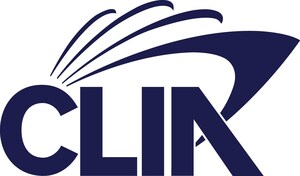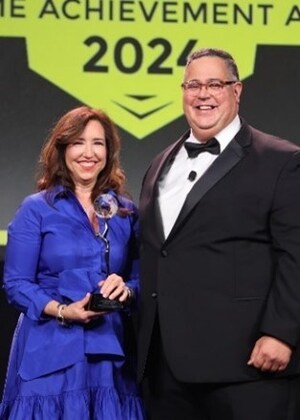Cruise Industry Highlights Continuing Efforts to Protect the Environments Where It Operates
Cruise Lines International Association and Its Members Commemorate Earth Day
WASHINGTON, April 22, 2013 /PRNewswire-USNewswire/ -- In celebration of Earth Day, Cruise Lines International Association (CLIA) today highlighted the ongoing efforts of its member lines to protect the ocean environment.
CLIA and its members lines have a vested interest in protecting the environment, not only because it is the responsible thing to do – but also because clean oceans and beaches are essential to the cruise experience. The international environmental standards that apply to the cruise line industry are stringent and comprehensive and are established by the International Maritime Organization (IMO), a United Nations agency, as well as national laws of port States where cruise ships visit. The cruise industry, however, employs practices and procedures that are substantially more protective of the environment than are required by regulation and CLIA member lines must meet and often exceed all applicable environmental regulations on a ship's voyage.
CLIA members have been at the forefront of wastewater treatment, emissions reduction and the development of innovative technologies to further reduce the environmental impact of cruising.
"I am extremely proud of the extensive investments and ongoing commitment of our member lines to safeguard the environment for future generations through responsible practices and continuous innovation," said Christine Duffy, president and CEO of CLIA. "The cruise industry has invested extensively to develop and implement wide range of new technologies that protect air and water quality and increase energy efficiency."
Energy efficiency is a major focus of the cruise industry, which has adopted practices such as using recycled hot water to heat passenger cabins, using special window tinting to keep passageways cooler while using less air conditioning, and switching to low energy LED lights which last 25 times longer, use 80% less energy, and generate 50% less heat. All of these efforts also reduce air emissions. CLIA members have invested significantly over the last decade to develop and implement new technologies that help to reduce air emissions, including utilizing exhaust gas scrubbers, developing engines that run more efficiently and increasing the use of shore power, which involves a ship connecting to shore-side power and shutting down its own engines while in port.
Working with the IMO, the United States and other flag and port States, CLIA has participated in the development of consistent and uniform international standards governing waste management that apply to all member ships that travel internationally. CLIA members have also adopted the Cruise Industry Waste Management Practices and Procedures, which are even more protective than the existing regulatory requirements.
Many CLIA member lines offer programs to raise passenger awareness and to encourage them to conserve energy and contribute to the industry's environmental stewardship efforts by recycling paper, plastic, aluminum cans and glass through the use of dedicated bins throughout the ship. Passengers are also encouraged to preserve energy like they would do at home, such as turning off lights when not in their cabins.
Additional initiatives and practices in place at CLIA member lines include the following:
- Several lines are in various stages of utilizing advanced wastewater treatment systems which can produce water cleaner than most wastewater treatment facilities in U.S. cities.
- One member line has installed solar panels on five ships — and on one ship over 200 solar panels have been installed, which generate enough power to operate approximately 7,000 LED lights.
- A number of member lines use fabric bags – including laundry, dry cleaning, and shoe shine bags – in lieu of plastic bags, thereby reducing plastic from the waste stream.
- Many lines are using ecological, non-toxic, slick hull coatings that save as much as 5% of fuel usage for propulsion.
- Condensation from shipboard air conditioning units is reclaimed and then re-used to wash the decks on a CLIA member line's ships, saving up to 22.3 million gallons of fresh water in 2012 alone.
- One CLIA member line saves paper by using an E-Tickets program which delivers cruise documents to guests electronically instead of on paper. The passengers cruise documents are delivered as a PDF file through email.
- Various ships are installing high-efficiency appliances onboard their ships in order to minimize their impact on the environment. Every type of appliance onboard the ships is evaluated for efficiency, including TV's, coffee makers, ovens and dishwashers.
- One CLIA member line is self-generating 87% of the water used on board its ships, compared with 65% in 2008.
- One CLIA member line introduced a revolutionary system for fresh water production that consumes 40% less power than traditional systems.
- Current shipboard recycling programs onboard one line's ships eliminates more than 900 tons of metal, glass, plastic and paper — approximately 45% of all solid waste generated — from traditional waste streams each year.
- Through its robust waste management programs, one line has increased its waste recycled and reused by over 75% while reducing the amount of waste going to landfill by over 50% in the past five years.
The cruise industry is highlighting how its member lines are safeguarding the oceans and the environment through the recently launched 'Cruise Forward' industry-wide communications initiative. Specific examples of how cruise lines across the globe are actively working to reduce the overall environmental impact of cruising and preserve and protect pristine oceans, beaches and ports can be found online at www.cruiseforward.org.
About CLIA
Cruise Lines International Association (CLIA) is the world's largest cruise industry trade association with representation in North and South America, Europe, Asia and Australasia. CLIA represents the interests of cruise lines, travel agents, port authorities and destinations, and various industry business partners before regulatory and legislative policy makers. CLIA is also engaged in travel agent training, research and marketing communications to promote the value and desirability of cruise holiday vacations with thousands of travel agency and travel agent members. CLIA's Associate Member and Executive Partner programs include the industry's leading providers of supplies and services that help cruise lines provide a safe, environmentally-friendly and enjoyable holiday vacation experience for millions of passengers every year. For more information on CLIA, the cruise industry, and CLIA-member cruise lines and travel agencies, visit www.cruising.org. CLIA can also be followed on the Cruise Lines International Association's Facebook and Twitter fan pages, and CEO Christine Duffy can be followed@CLIACEO and cruising.org/ceoblog.
SOURCE Cruise Lines International Association
WANT YOUR COMPANY'S NEWS FEATURED ON PRNEWSWIRE.COM?
Newsrooms &
Influencers
Digital Media
Outlets
Journalists
Opted In





Share this article